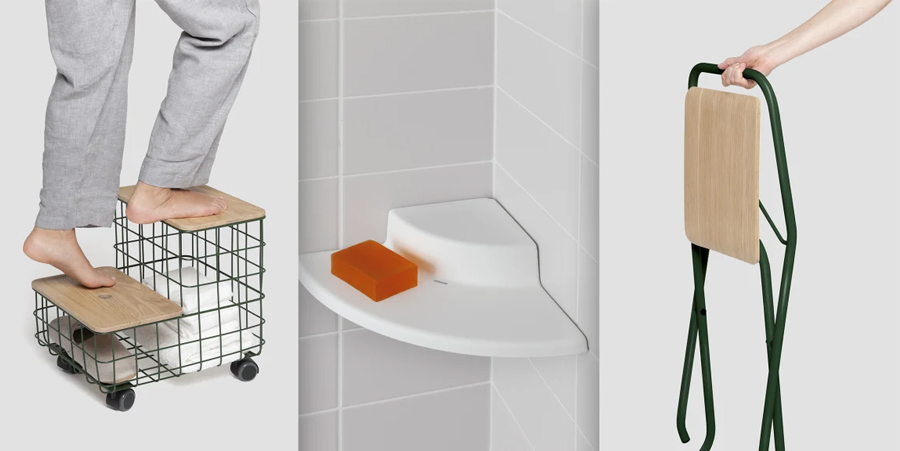One way to curb our environmental footprint is to downsize our homes. Muji’s new designs make it seem downright fun.
As the world confronts the horrors of climate change, we’re having to think about how we can live more sustainably. One way is to move into a smaller home, which can curb your environmental footprint by 45%.
To many, the idea of squeezing into tighter living quarters doesn’t seem very appealing. But a new collaboration between the Japanese design brand Muji and the University of Art and Design in Lausanne, Switzerland, developed clever furniture and accessories designed for living in tiny spaces. Their project, called Compact Life, is currently on display at Milan Design Week, and it makes the concept of downsizing feel like an opportunity to embrace minimalism and free yourself from clutter.
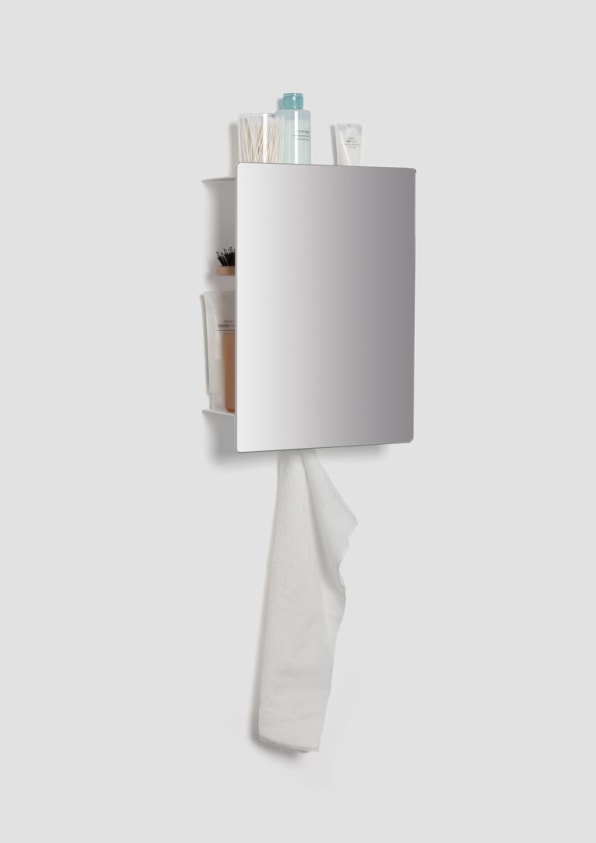
Muji is well known for its anthropological approach to design. The “Muji method” involves carefully observing people’s daily routines, then designing innovative solutions to very specific problems. For this project, Muji partnered with undergrads in the university’s department of industrial design to study how people interact with small spaces. The students documented how they lived in their own dorms and apartments. Then they interviewed people around the world to determine how others utilized the spaces in their small homes.
These students, in collaboration with Muji designers and the Swiss designer Michel Charlot, developed a suite of 12 products that makes the most of a small home’s space but still manages to create that clean, minimalist aesthetic that Muji is known for. (For now, these products are just conceptual and not available to purchase.)
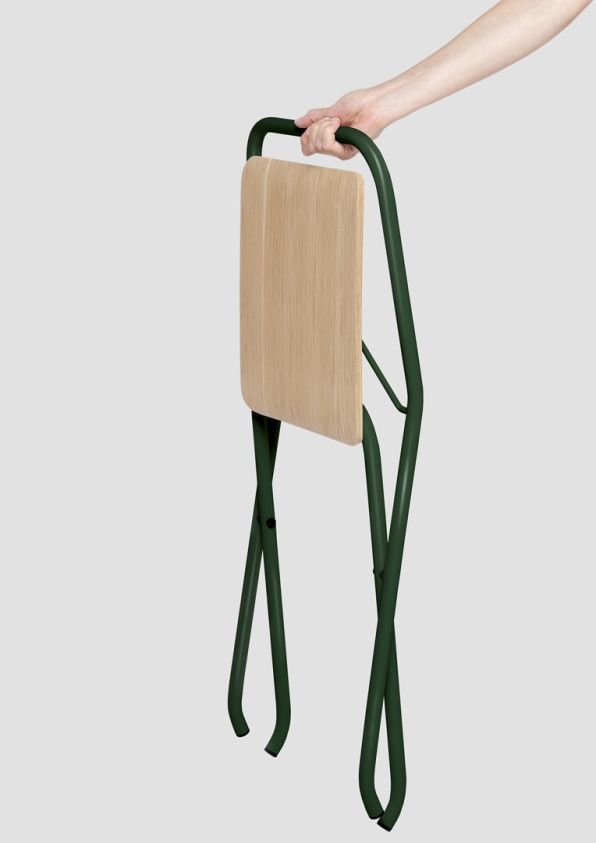
Many of the products can multitask. A collapsible chair, for instance, allows you to sit and read but can also serve as a side table. A simple wire basket is perfect for storing extra towels or bedding but can also be used as a stepladder. There’s a shelf that allows you to tuck your toiletries away behind a mirror that doubles as a whiteboard, in case you’re in the mood to leave notes to yourself.
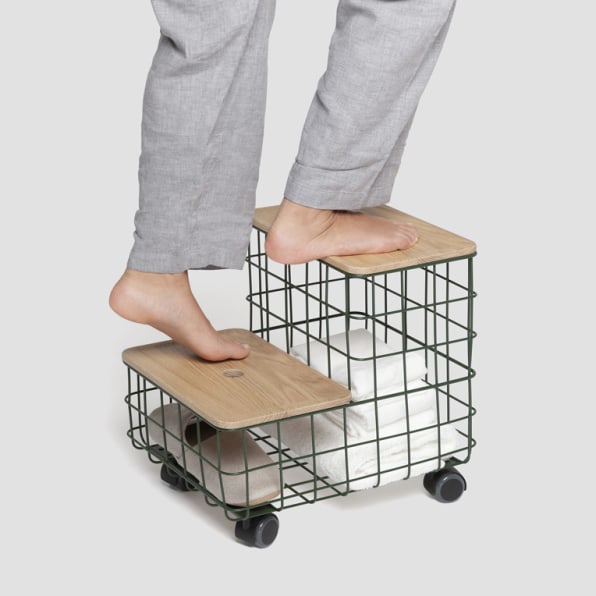
Some of my favorite products are frames developed by undergrad Eugenie Perrin, which let you mount art or photos but whose edges double as clips for notes and cards. The most interesting pieces were a direct result of the students’ observations. For instance, they found that people don’t want to be constantly surrounded by their technology, so they created a bedside table that charges your phone while keeping it out of sight. They also learned that people in dense, urban environments crave nature. One student, Jillian Reichlin, developed an “insect house” made from wire and hollow bamboo branches. You can hang it outside your window and watch bees make their homes there.ADVERTISINGFAST COMPANY EVENTSFast Company announces details of seventh annual innovation festival“The Rebuilders” will explore opportunities to reshape business, community, and culture, post-pandemic.
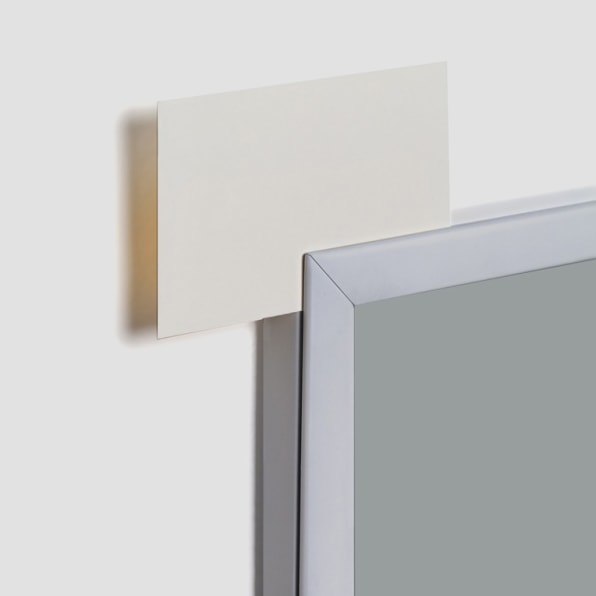
One thing that’s noteworthy is the lack of storage space throughout the collection. There’s a set of wire racks designed to be stored under a bed; a pole that allows you to hang a few coats, bags, and other garments; and a valet stand for freshly ironed clothes.
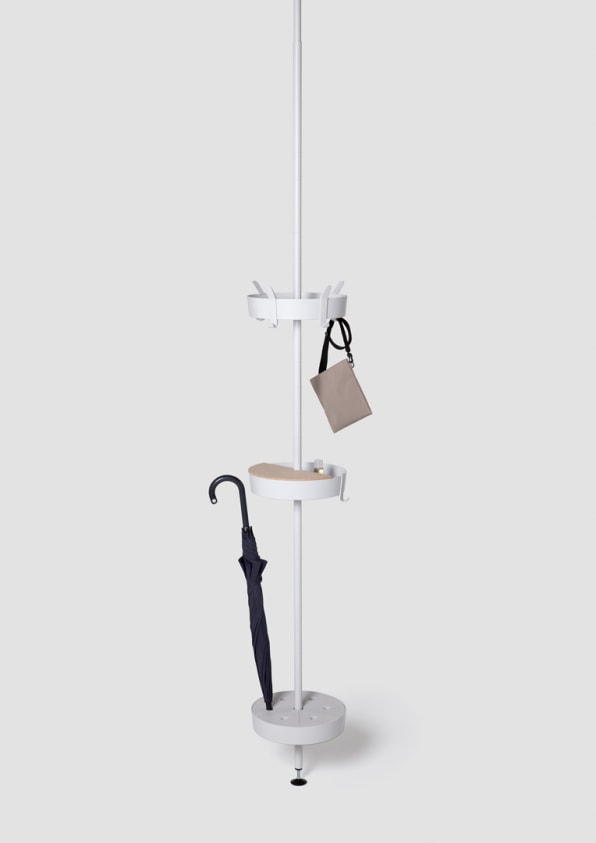
But part of the beauty of living in a small space is learning to live with less. A recent study by Maria Saxton, a Ph.D. candidate in environmental planning and design at Virginia Tech, found that when people moved into smaller homes, they changed more than 100 behaviors, most of which had a positive impact on the planet. Many limited their wardrobes to a capsule of a few key pieces, recycled more plastic and paper, and generated less trash. And given that overconsumption is destroying the planet, owning fewer clothes could be a big step in curbing our carbon footprints.
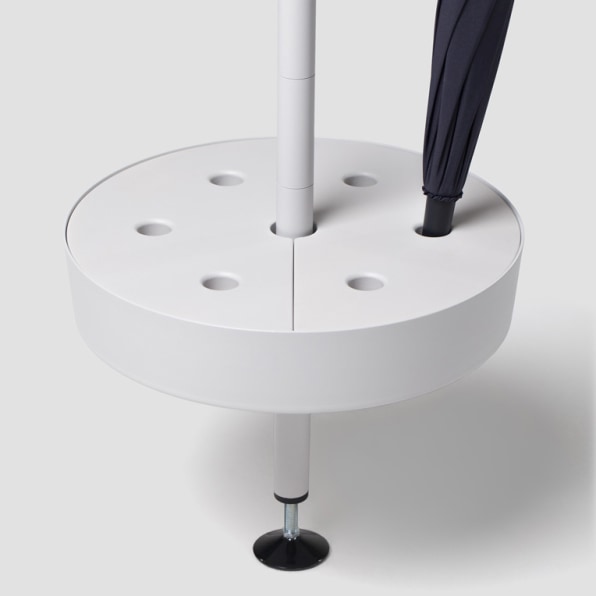
Many people around the world, especially in big cities like Tokyo and New York, already live in compact spaces. These kinds of products could make everyday life at home easier and more comfortable. And for the many Americans who are used to the luxury of large houses, these products help us imagine another way of living—one that ensures we have a livable planet in the decades to come.
…
This article first appeared in fastcompany.com
Seeking to build and grow your brand using the force of consumer insight, strategic foresight, creative disruption and technology prowess? Talk to us at +971 50 6254340 or mail: engage@groupisd.com or visit www.groupisd.com/story

